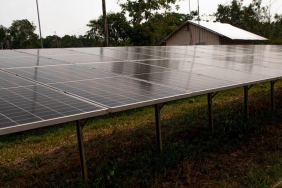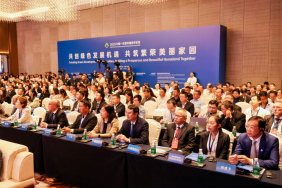MEASURING THE ECONOMIC AND ENVIRONMENTAL BENEFITS OF SUSTAINABLE PALM OIL MANAGEMENT
WWF Indonesia collaborated with the Center for Transdisciplinary and Sustainability Sciences (CTSS) of Bogor Institute of Agriculture (IPB) to conduct an agro-biodiversity study in 4 WWF Indonesia’s assisted smallholder groups which include Amanah association in Pelalawan, Riau, Asosiasi Mandiri Bersama in Kuantan Singingi, Riau, Rimba Harapan Cooperative and KUD Harapan Jaya in Sintang, West Kalimantan. The research was conducted to evaluate the impact of oil palm BMP (Best Management Practice) on biodiversity, ecosystem service, and economic valuation. BMP itself has been known as an important guideline to ensure safe land use policies and efficient plantation management.
The research focused on comparing BMP and non-BMP oil palm plantations from two locations; Amanah Association and Rimba Harapan. Both smallholder groups were selected as samples for the BMP-Covered area where non-BMP samples were taken from other smallholders around the same location that met the research criteria.
One interesting finding is the link between biodiversity and ecosystem services, highlighted by the presence of insects in the ecosystem. The study shows how Insects are used as an indicator of good water management, significant improvement in pest control, and carbon services. This is related to the fact that insects are predators and natural enemies of biological control of pests. The study also shows that BMP oil palm plantations have a greater number of parasitoid predators, while non-BMP oil palm plantations have greater pests.
In the economic valuation aspect, the research shows that smallholders who implement BMP have better economic value in terms of ecosystem service production. These plantations generate IDR 30 - 32 million per hectare per year, which is net of costs, and the value of natural enemy services amounts to IDR 10 - 11 million per hectare per year. Furthermore, it is also found that the water and erosion regulation values lead to higher costs compared to those plantations practicing BMP, due to the improved quality and quantity of sediment reduction in the river which can minimize flooding.
To assess the economic aspect, 3 approaches were made. First, the market-based approach evaluates the value by comparing water quality between BMP and non-BMP oil palm plantations. Secondly, the avoided cost approach calculates the economic benefit from the saving cost of reduced sedimentation and lower dredging costs. Lastly, the natural enemy services approach estimates the value of pest control indicated by the availability of insects, which reduces the need for pesticides and maintains crop yields. These methods help to quantify the economic benefits of environmental practices and services.
Based on these findings, it can be concluded that practicing sustainable oil palm management (indicated by RSPO Certification) goes beyond the environmental aspects, but also the economic aspect. It also shows how minor elements in nature such as insects also play a crucial role in the ecosystem. However, the result of this study is also affected by the different spatial characteristics of each plantation. Amanah Association is associated with easily visible plantations located in one area as it was formerly schemed by Asian Agri. Whereas Rimba Harapan Cooperative has a more scattered spread of plantations as the local smallholders initially planted it in various locations. Hence, these spatial characteristics affect ecosystem services, habitat corridors, and microclimates.
Next action
To further develop the ecosystem services and economic aspect, the development of incentive schemes for sustainable oil palm plantation management beyond RSPO credit will be needed. Improvement in payment for environmental services, more advanced education on long-term benefits of RSPO credits, and social credit that includes human rights regulation and corporation issues will showcase more concrete benefits, encouraging smallholders to apply BMP.





